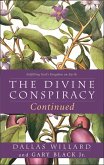In "The Sin and Danger of Self-Love," Robert Cushman delves into the intricate relationship between self-adoration and its psychological and spiritual ramifications. Set against the backdrop of early 17th-century Puritan thought, the text employs a didactic literary style that fuses rigorous theological discourse with eloquent prose. Cushman meticulously critiques the perils of excessive self-love, juxtaposing it with foundational Christian tenets that advocate humility and self-denial. His argument is both timeless and relevant, as he navigates the complexities of human emotion, presenting self-love as a profound moral failing that not only distances individuals from God but also fosters societal discord. Robert Cushman, an influential figure in early American religious life, was deeply embedded in the Puritan movement, which greatly informed his philosophical and theological outlook. His experiences as a preacher and settler imbued him with a nuanced understanding of human nature and morality, prompting him to explore themes of redemption and spiritual accountability. Cushman's commitment to the Puritan ethos is evident throughout the book, reflecting his genuine concern for the spiritual welfare of his contemporaries and future generations. This compelling work is essential for readers seeking to engage with the intersections of faith, morality, and human psychology. It appeals not only to scholars of Puritan literature but also to contemporary audiences grappling with issues of selfhood in an increasingly individualistic society. Cushman's insightful examination offers profound lessons that resonate beyond its historical context.
Dieser Download kann aus rechtlichen Gründen nur mit Rechnungsadresse in A, B, BG, CY, CZ, D, DK, EW, E, FIN, F, GR, H, IRL, I, LT, L, LR, M, NL, PL, P, R, S, SLO, SK ausgeliefert werden.









